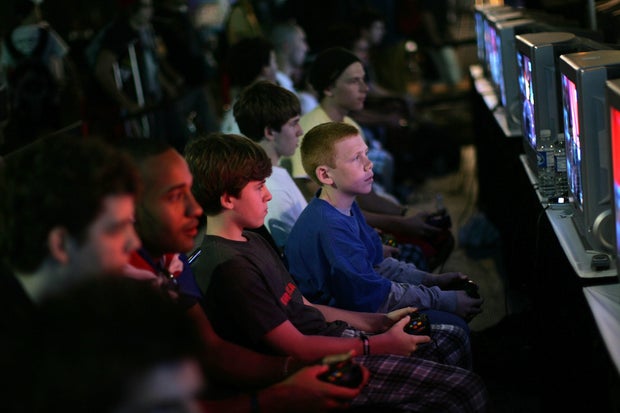Video games are where American teenagers form friendships — but also where most say they are bullied and called names, a Pew survey released Thursday found.
More than 1,400 teens ages 13 to 17 participated in the survey last fall, answering questions about various aspects of your relationship with video games. Some of the results are expected. For example, the vast majority of teenagers in the US – more than 85% – play video games.
But other topics were not as clear and painted a more complex picture of how teens viewed their experience. Research participants reported that video games were a way to have fun and make friends, although they also reported bullying, harassment and swearing. But even with these problems, they still wanted to keep playing, saying that games also helped them with their problem-solving skills and even their mental health.
Spencer Platt/Getty Images
Most teens said they play video games for fun or “entertainment reasons,” with about three-quarters saying they play to spend time with other people. They said they did not consider games to be harmful to themselves or their lifestyle, although 40% said they harmed their sleep.
About 58% of respondents said they felt they played the right amount of video games.
There were also marked differences in how different genders said they respond to and engage with video games.
Teenage boys play video games much more frequently than girls – and almost two-thirds play them daily – and this activity forms a large part of their social lives. More than half of teenage boys said video games helped them make friends, compared to 35% of girls surveyed.
Black and Latino teens said they made more friends than white teens, and the numbers rose even more for those who considered themselves gamers.
Even with all the friendships made, about half of teen boys said they were called offensive names while playing, with about a third of girls reporting the same. Eight in ten said bullying is a problem in video games, and about a third of teens surveyed said it’s a big problem.
























